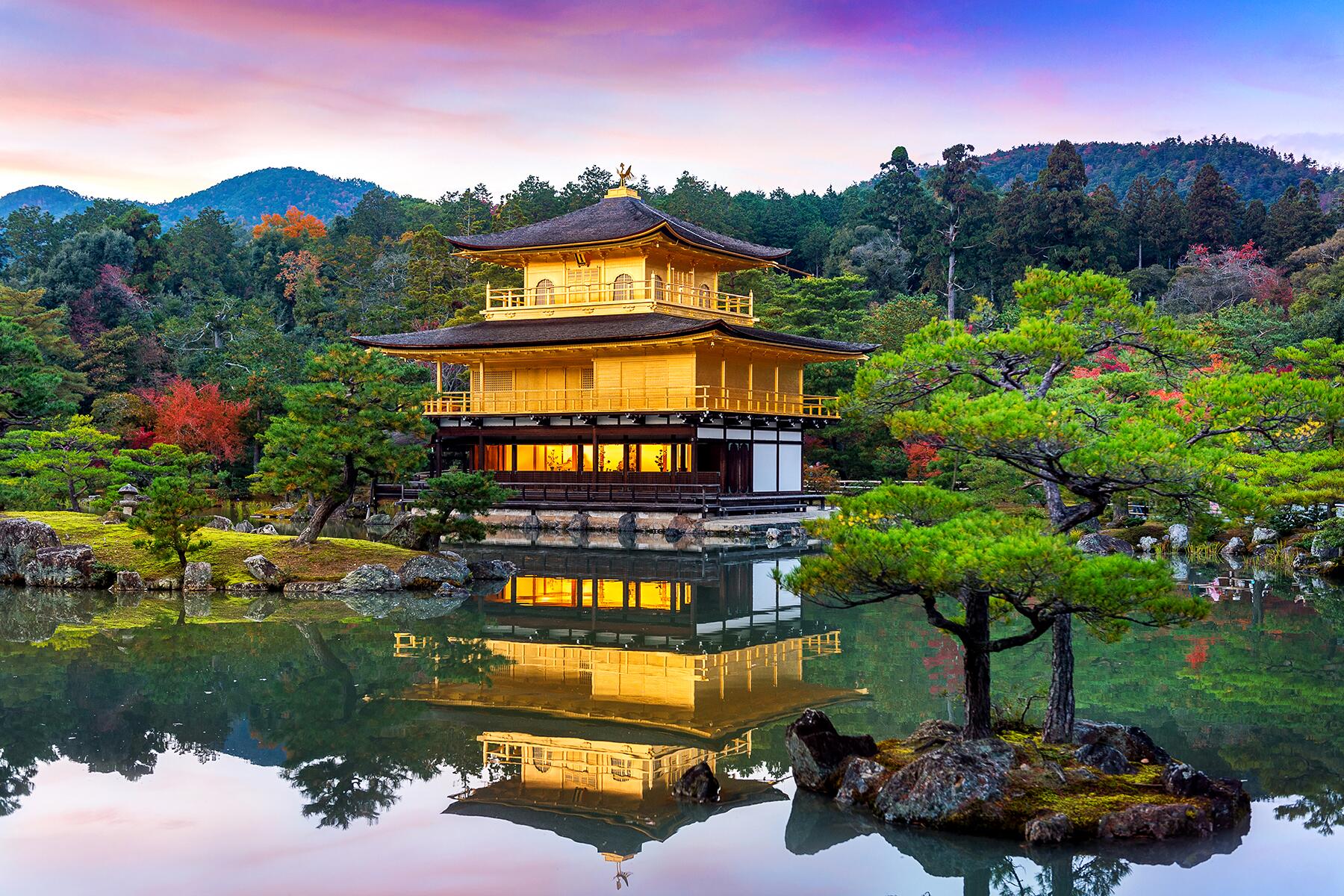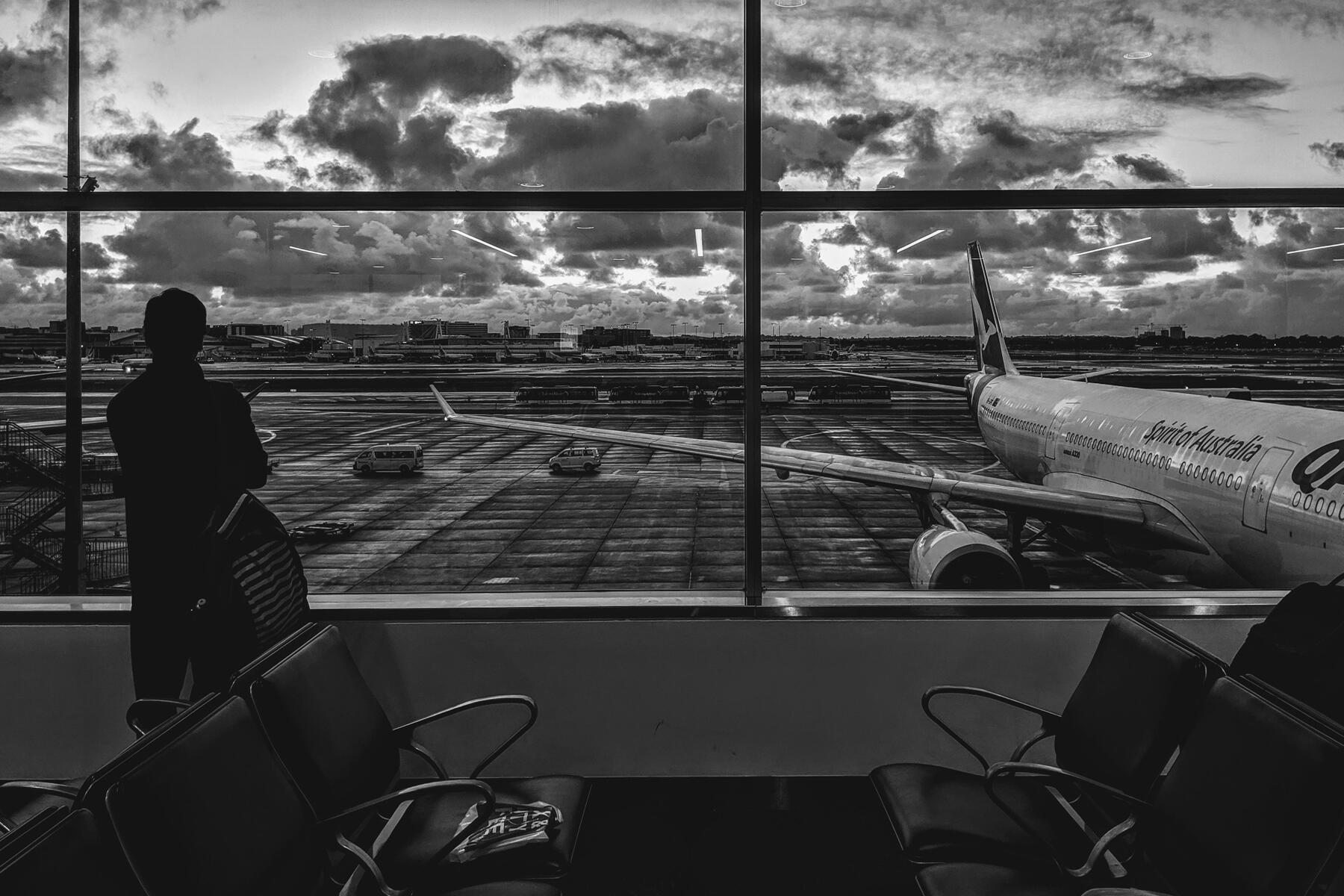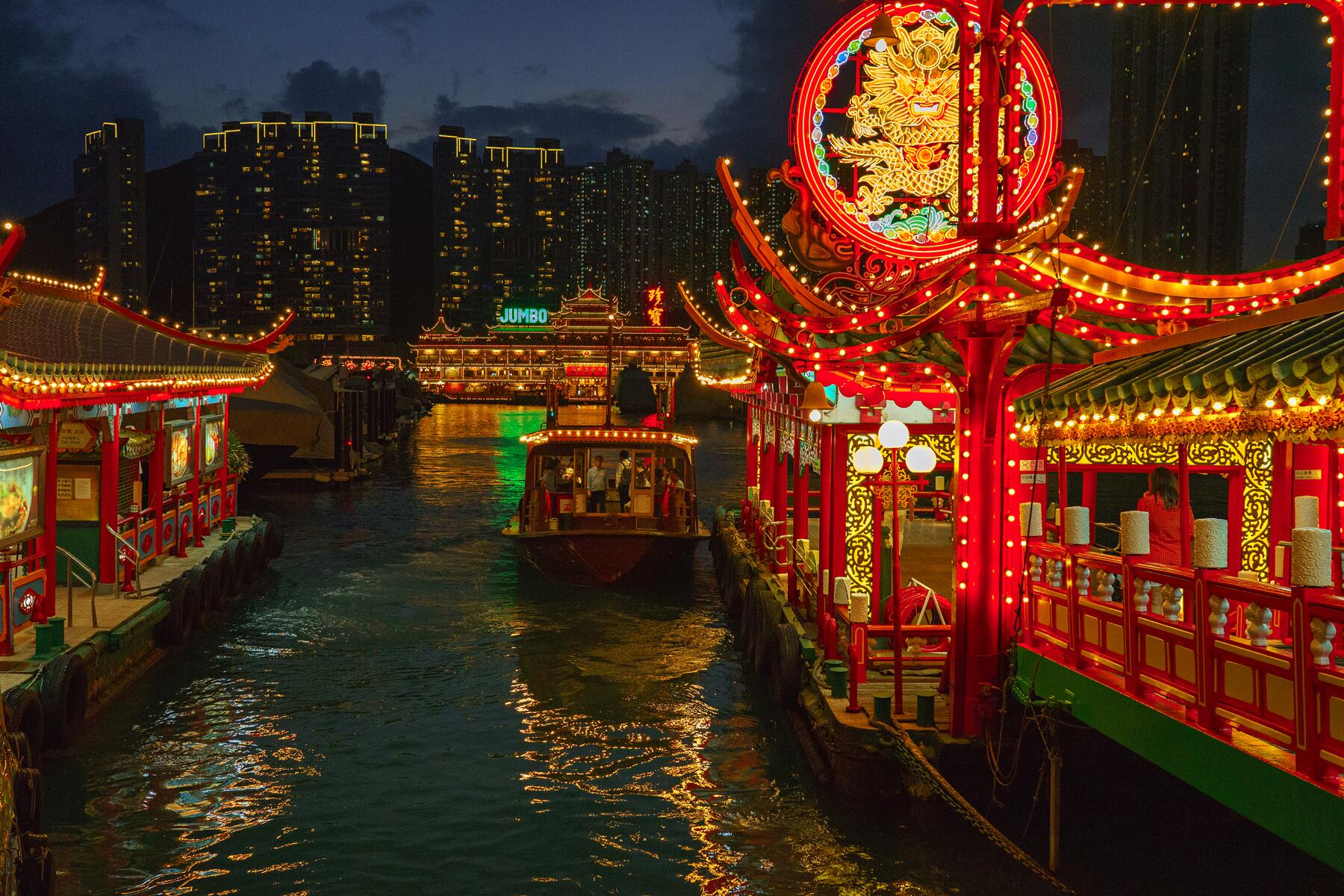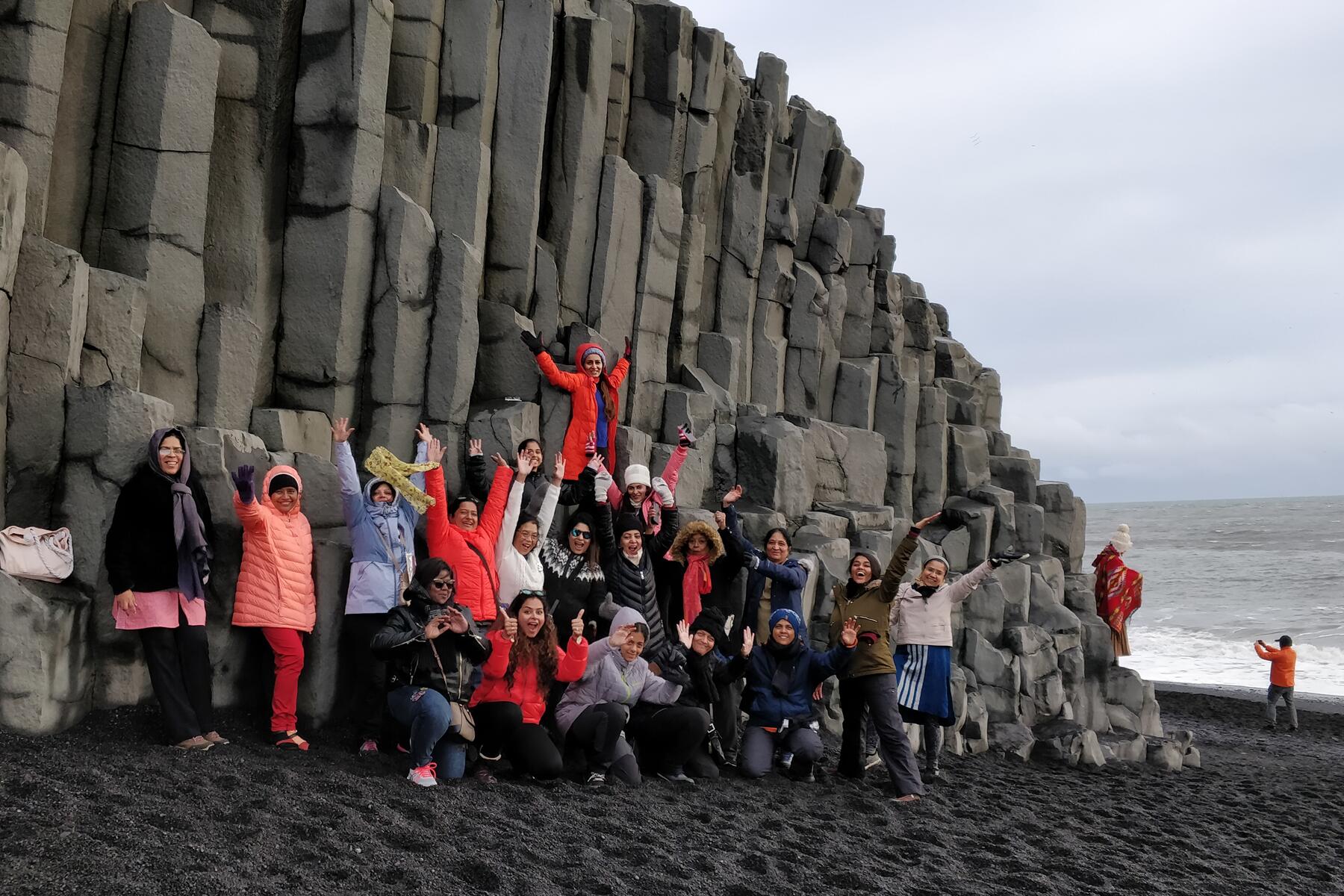Experts expect smaller groups, driving trips, and experiential travel.
A bus packed with tourists screeches to a stop at a popular landmark. Following a flag-bearing guide, dozens of travelers deboard and wait for instructions that go something like: everyone has 15 minutes to look around and then they’ll meet at the same spot. Disperse.
Urvija Kotak, an Indian interior designer, disembarked from one such tour bus in Germany, France, and Italy with her parents in June last year. The plan was to cover nine European countries in two weeks with 50-odd travelers. The drawback, she says, was that the schedule was inflexible, so she couldn’t explore on her own or try local cuisines. But the upside? “The airline misplaced our luggage and for the first five days, we had no clothes. But the tour guide took charge and helped us coordinate between the airline and the hotel since we didn’t know the local language.”
Why Group Tours Thrive
There are obvious advantages to booking a group tour. The all-inclusive packages are affordable, comfortable, and convenient—you know exactly where you’re going, what you’re eating, and what the cost will be, with very few surprises. In addition, these tours are a great way for novice travelers to dip their feet in the water and for seniors to see the world with ease. The unpredictability of travel (missing flights, losing luggage, getting lost), and new risks (strikes, protests, terrorist attacks) have made travelers nervous. With safety a primary concern, women travel groups are also rising, catering to solo women travelers who want to meet other like-minded travelers.
Recommended Fodor’s Video
Yet, there are definite problems with group tours, too. With growing concerns about overtourism, popular attractions have been considering new policies to restrict tourism. Cruise liners are being urged to be more environmentally-conscious.
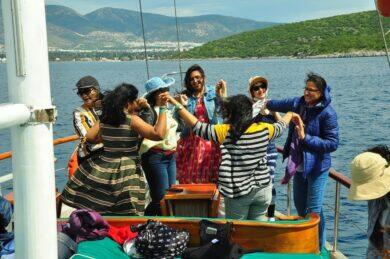
Global lockdowns have shown us that the impact of travel is huge on the planet and things have to change. And they will—it’ll be unthinkable to travel in hordes (with strangers no less!) to crowded destinations. Not just travelers, but local authorities and establishments will discourage it to contain the rampant virus.
So, will Kotak take a group tour again? Unlikely. “I would have liked to explore freely and not miss out on local food and experiences, but traveling with so many people in one bus is not even an option now. Even my parents, who were really happy with the tour, won’t consider it right away.”
China Paves the Way
Group tours are highly popular all over the world, from Americans and Europeans to Asians. However, Chinese travelers have long loved this way of sightseeing. China is the largest market for outbound travel and the world’s largest spenders. Pre-coronavirus, it was hardly a surprise to see groups of Chinese tourists clicking selfies at the Eiffel Tower or Angkor Wat, as 55% of Chinese tourists reported last year they like to travel in groups and most like to travel with family (51%) or friends (27%). But in the past few years, tourists have gained more confidence and ventured out on solo journeys as well, shedding the old image of being unadventurous.
Coronavirus is changing trends further. In a recent McKinsey report, 68% of Chinese travelers said it’s now impossible to consider group tours, and they’re focusing on driving holidays and self-guided tours. A few may undertake small-group tours, and with the ban on domestic group tours lifted, it may be possible with many socially distant practices.
These are the changes in group travel that we might soon see all over the world.
Groups Will Get Smaller and Private
Taking a cue from travelers, tour operators have already started evolving. SOTC Travel, a company that specializes in escorted and customized tours, revealed in its Holiday Readiness Travel Report – Future of Travel report that 63% of respondents (from India) were inclined to travel solo, while 23% wanted to travel in small groups and 12% were okay with groups with more than 35 people.
Thus, the company has made the post-COVID-19 travel checklist: curated itineraries, private journeys for small groups of family and friends, chauffeur-driven tours and private transfers as well as safety protocols, including partnering with four- and five-star hotels and a comprehensive insurance cover.
“Private trips are an emerging trend that let families and friends enjoy and explore a destination in privacy and safety in the COVID era,” Daniel D’souza, President & Country Head, Leisure, SOTC Travel, says. But with groups getting smaller, affordability will be a factor. Travelers may have to shell out more for airfare as well. Will that be a deterrent? With health and safety a primary concern, 35% of respondents were willing to pay more for experiences.
Less Flying, More Driving

With travelers being apprehensive about flying and different quarantine rules at destinations, the alternative will be short, immersive trips. Tom Marchant, co-founder of Black Tomato, understands the challenges that lay ahead with movement restrictions, but doesn’t think it will change people’s desire to travel. “People are exploring their own backyards and looking at remote expeditions, long rail journeys, and private properties with their friends and families.” The bespoke travel company has launched road trips in the U.S, partnering with Auberge Resorts Collection, with four itineraries for luxury travelers. “The Great American Road Trip is a bucket list experience and COVID-19 has put a spotlight on it. It’s an easy thing to do and we have received a great response,” he adds.
International travel is understandably difficult, so people are rethinking vacations, leaning toward multiple shorts breaks, and transformative experiences rather than a big to-do of a trip.
Sumitra Senapaty, founder of WOW (Women on Wanderlust) Club, runs a women’s travel group in India and she’s unsure about international travel happening before December, if at all this year. She is curating road trips for smaller groups of up to 10 solo women travelers who are keen to be back on the road.
International travel is understandably difficult, so people are rethinking vacations, leaning toward multiple shorts breaks and transformative experiences rather than a big to-do of a trip.
Talking about the future of group travels, she elaborates, “[The] number of people will come down because people over 60 or with low immunity wouldn’t want to travel. Women won’t like to share space with a large group, so we’ll have smaller vehicles. The trips will be more relaxed and do-it-yourself, with the extra frills gone. The activities will change, too—itineraries will no longer have concerts and shows or crowded markets.”
Not that road trips will be easy as pie—there is lots of preparation to be done. Travelers, depending on where they live, will have to self-declare, get tests done, research on different states/regions and their mandates and health stats, find hotels and their new policies, and keep social distancing practices in mind. Self-drive trips in the time of coronavirus also mean that you can’t make too many stops on the way, so packing a picnic will be a must. If you’re booking a tour operator, read up on how they’re keeping the vehicles sanitized, what practices they’re following, who they’re partnering with, etc. Regardless, you should stay at properties running on low capacity, so you’re not bumping elbows with other travelers. Thinking of camping in a national park? You still need to be vigilant.
Focus On Sustainability
Sustainability has been a buzzword for many years, but coronavirus could be a real catalyst for change, not just for escorted travel but for the industry as a whole. The stress of taking a flight has increased many folds and we’re still understanding the protocols from different airlines, so it’ll reduce air traffic for a few more months. Crowded places, too, induce anxiety, so people will prefer nature experiences in remote destinations and the kind of off-beat vacations that companies like Black Tomato offer. Less people means low impact on the environment due to tourism.
“This new era of travel will see the rise of the sensitive traveler, who respects his ecosystem and will seek deeper, enriching travel experiences. Trends such as slow travel—allowing one to experience a destination at a leisurely pace while appreciating the local heritage—will become the new norm,” predicts Rajeev Kale, President & Country Head – Holidays, MICE, Visa, Thomas Cook (India) Ltd.
Marchant predicts more solo travelers post-COVID-19, but not a crazy spike. “It has always been popular and people will do it still,” he says. Senapaty agrees with this assessment, but Kale figures that solo travel may take a backseat right now due to challenges in quarantine and differing global health requirements. He foresees solo travelers getting back in the game when confidence returns.
It’s time to get used to another scene: A minivan stops in front of an eco-resort. A family, all clad in gloves, masks and face shields, disembarks and sanitizes their hands before heading inside. The driver-guide parks the vehicle and starts the long process of spraying, wiping, and disinfecting.
